Kevin Clarke
Operetta Research Center
18 November, 2019
It’s hard to believe, but this is actually only the second fully staged production of Paul Abraham’s Märchen im Grand Hotel since 1934. After Berlin’s Komische Oper revived the piece in a sparkling concert version in 2017, the opera house in Mainz brought it back for real in April 2019. And now the even larger Staatstheater Hannover is presenting another new interpretation only half a year later. It’s an Operettenwunder!
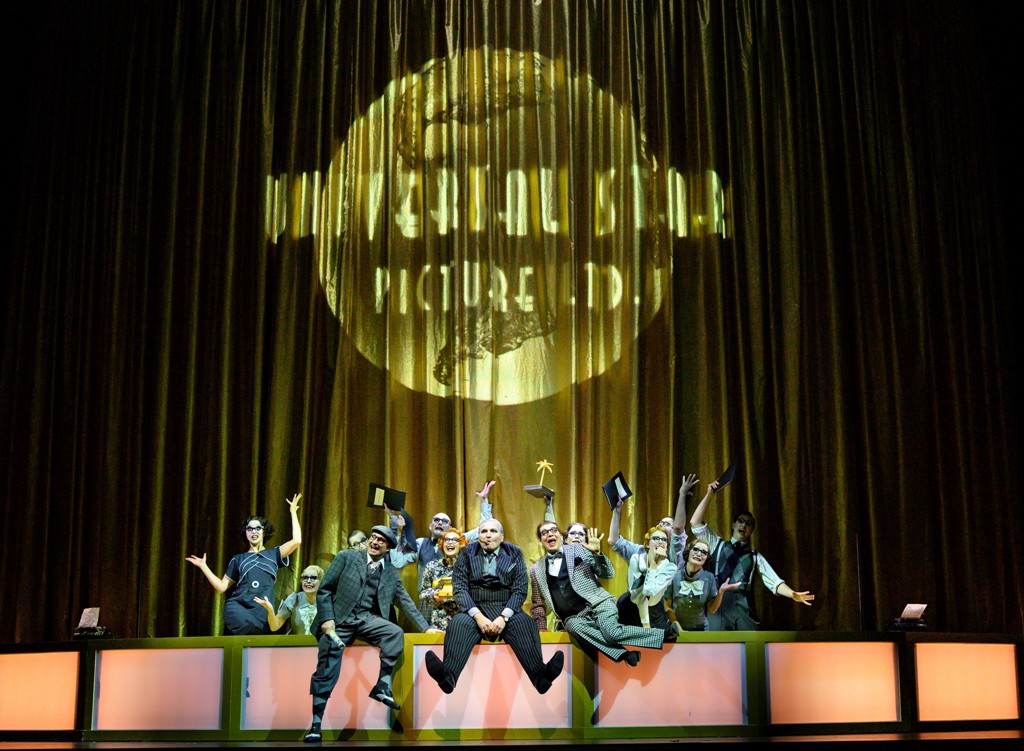
A scene from “Märchen im Grand Hotel” at Staatstheater Hannover, 2019. (Photo: Ralf Mohr)
Abraham wrote Märchen for Vienna, and after the lavish hits Viktoria (1930), Blume von Hawaii (1931) and Ball im Savoy (1932) he and his librettists Löhner-Beda and Grünwald decided to scale things down and present a “chamber piece” they called a “Lustspieloperette.” The idea was to make it easier to stage the work at smaller venues, since the big German houses were now taboo.
The story is close to the new film musicals of the early 1930s, the screwball comedies of Ernst Lubitsch, the Busby Berkeley dance spectacles. Löhner-Beda and Grünwald utilized the formulas of the competing genre – and stage operettas back then were in competition with musical films – to develop a story that brings Hollywood and “Good Old Operetta-Land” together: a movie producer in Los Angeles is looking for something new to spice up his next production, so he decides to do something about royals and their current fate, but he wants to do it with “real” royals. Producer Mr. Mackintosh (not related to Cameron) sends off his daughter Marylou to Europe to convince a group of exiled princes and princesses to be in his “reality” movie, for a lot of cash that they desperately need. And so the New World emancipation and rhythms of Marylou (a role created by Rosy Barsony) clash with the Old World snobbism and waltzes of a Spanish infanta (a role created by real-life movie star Liane Haid) who is worshipped by the hotel waiter Albert (a role created by Oscar Karlweis). Of course he can’t marry someone so far above his social station. But don’t worry, there’s a happy end that’s surprising and very witty.

Original 1934 sheet music cover for “Märchen im Grand-Hotel.”
Abraham wrote a screwball comedy style score that brings together the best of then-current “American” music with wonderfully melancholic “European” moments. And the Staatsoper Hannover managed to find young performers who can cope with the tap dancing demands of the central roles, who also need to be singers with light comedy voices, not opera stars.

Valentina Inzko Fink as Marylou in “Märchen im Grand Hotel” in Hannover. (Photo: Kerstin Schomburg)
Valentina Inzko Fink as Marylou has just the right amount of cheekiness in her tone, and Alexander von Hugo as the enamored waiter Albert shines with a Gene Kelly kind of “easy delivery” style. You can listen to five musical numbers on the homepage of the theater under “Presse/Audiomitschnitte.”
The reviews are positive, claiming director Stefan Huber brings “Schwung & Swing” into the opera house with his production. Critic Uwe Friedrich claims on Deutschlandfunk that Stefan Huber manages to start the evening with a rousing tap dance number of “earthquake dimensions” – and follows this with more and more dazzle till the final climax. You can hear Mr. Friedrich discussing the production here, including some wonderful musical excerpts.
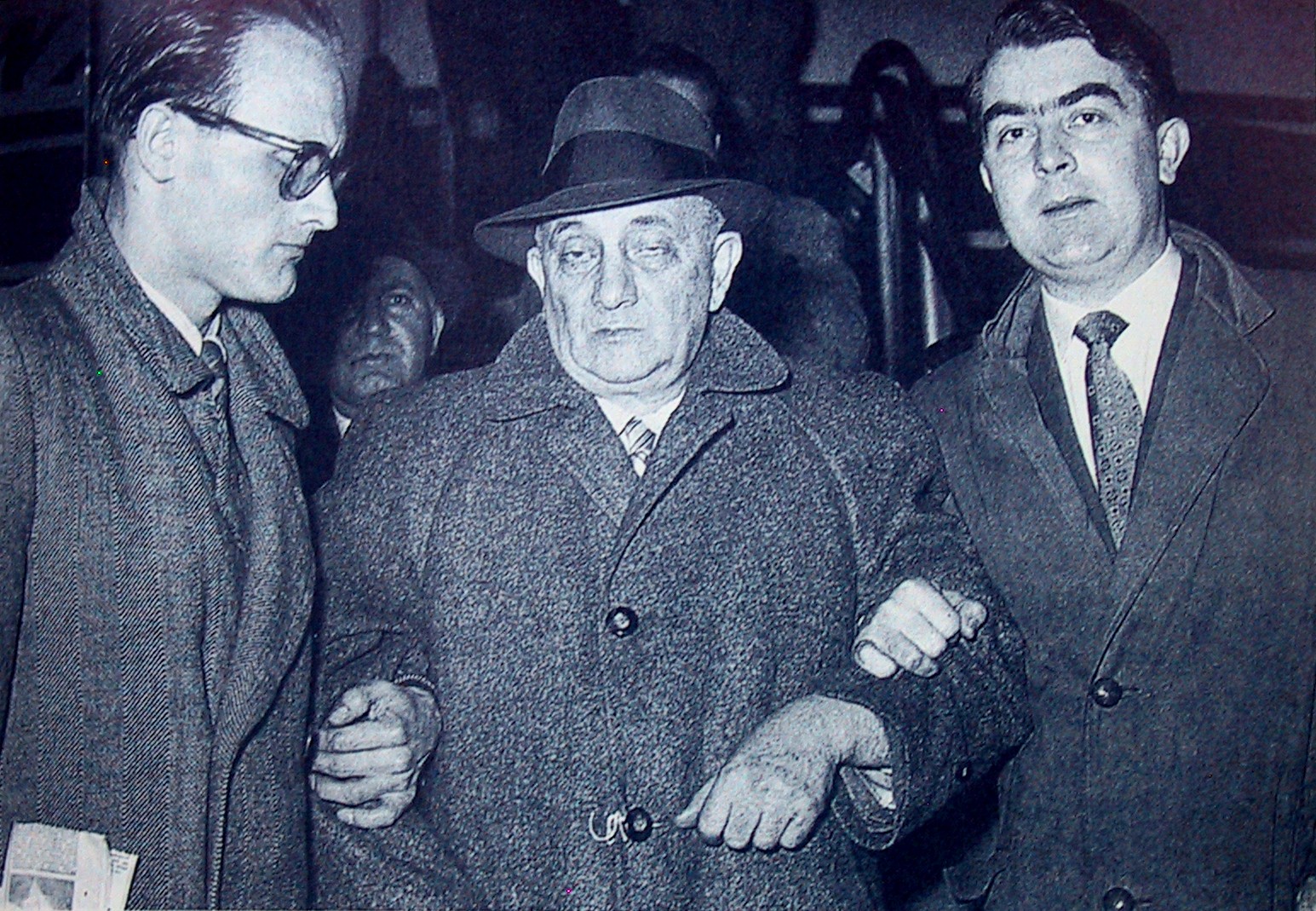
Abraham being escorted off the airplane on this return to Germany, after WW2. He was taken directly to a hospital to be treated for syphilis.
One particularly poignant aspect Uwe Friedrich mentions is this: back in 1934 Paul Abraham was in exile, driven out of Germany by the Nazis as “unwanted,” “un-German,” and “degenerate.” He eventually escaped from Nazi terror to the USA and ended up in a mental hospital.
His colleague Alfred Grünwald also fled from the Nazis in 1938 when they invaded Austria and brought it “back home” to Germany. Fritz Löhner-Beda was taken to a concentration camp in 1938 and died in Auschwitz.
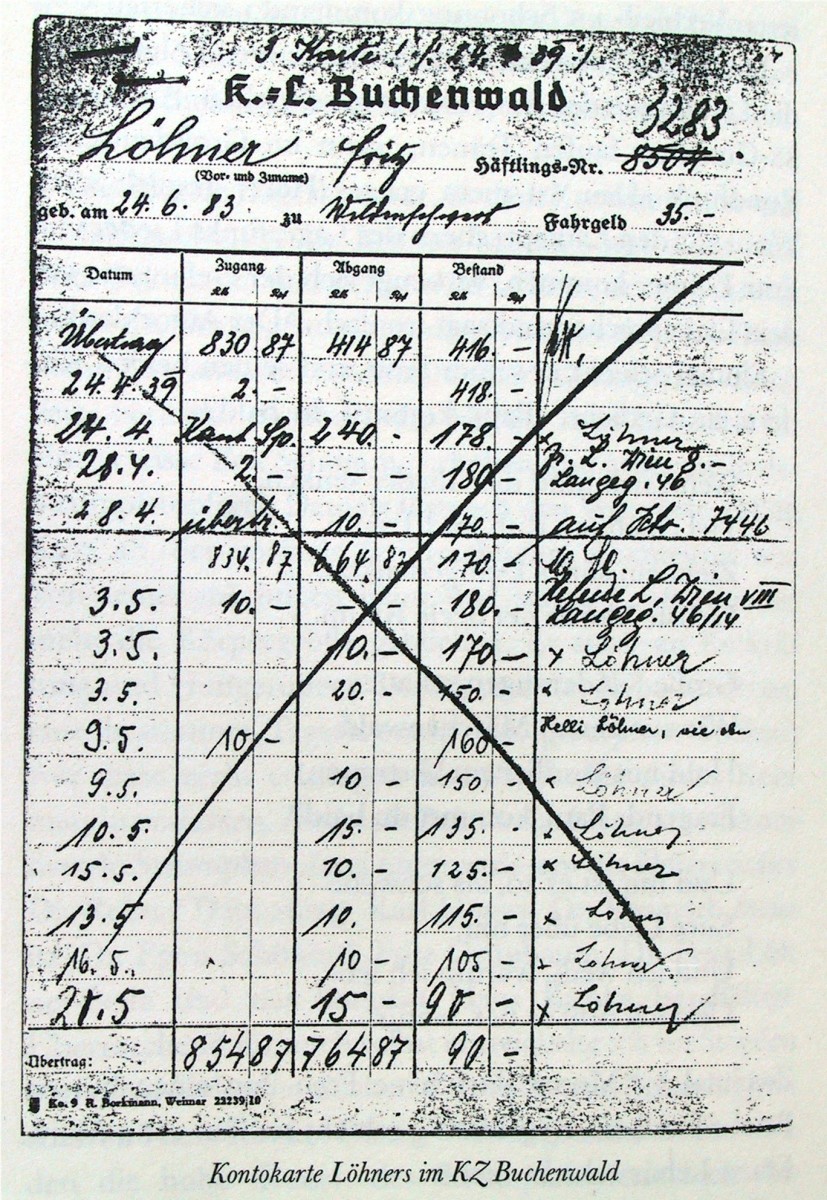
The concentration camp registration card of Fritz Löhner-Beda who died in Auschwitz.
Mr. Friedrich remarks that today many people in Germany once again discuss what being German means and what we want to consider as part of German culture, and what we do not consider part of it. And once more loud and aggressive groups are demanding that certain people and their culture(s) should be excluded and “sent away” because they “don’t belong here.”
Märchen im Grand Hotel is a reminder of what happens when such an ideology takes over. In the end, it was a great loss to German culture that people like Abraham, Grünwald and Löhner-Beda were erased from “Germanic” playbills. And German musical theater, like so many other areas of life, has never quite recovered from that “clean-up.”
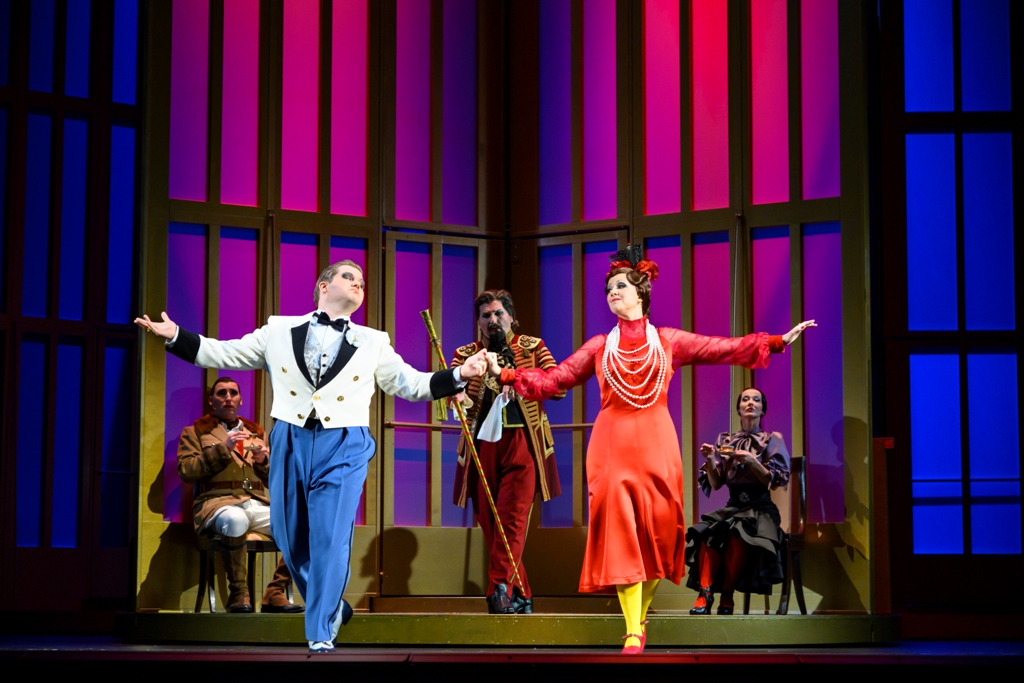
The dancing waiter and spanish infanta in “Märchen im Grand Hotel” at Staatstheater Hannover, 2019. (Photo: Ralf Mohr)
It’s a positive sign to see that Märchen vom Grand Hotel is now making such a comeback and that a new generation of theatre goers is happy to rediscover the lost music of Abraham & Co that was so typical of German popular culture pre-1933.
It seems only mainstream TV stations haven’t quite understood that yet, so on ZDF you get Franz Lehár’s Land des Lächelns (1929) conducted by Christian Thielemann as a New Year’s offering from Dresden’s Semperoper – but in an offering that’s as unpolitical and un-Weimar as can be. (Mr. Thielemann already demonstrated what he “understands” about music from that era in an earlier New Year’s concert, click here for the review.)
Of course, Land des Lächelns was also written by Fritz Löhner-Beda, just before he parted ways with Lehar and started a new writing partnership with Grünwald and Abraham. But once the Nazis took over they eliminated his name from playbills of Land des Lächelns performances and put the focus exclusively in Lehar as the celebrated composer of the new regime.
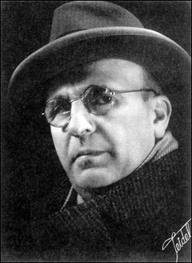
Star librettist Fritz Löhner-Beda.
While Thielemann has decided to present his “vision” of Weimar Republic operetta with the usual big voiced opera stars and with the usual big symphonic orchestra, probably also with the usual lush purple lightening and sopranos in lush ball gowns, Staatstheater Hannover has opted for something more novel and more in tune with the Babylon Berlin side of the genre. (That’s also part of Land des Lächelns, if someone would bother to seriously look.)
Yes, a Stefan Huber production is never as edgy as a Christian Weise staging, and Weise’s Alles Schwindel (1931) is an even more novel approach to the long forgotten world of Weimar Republic operetta, and Spoliansky/Schiffer offer a much darker vision of operetta than Abraham/ Gründwald/ Beda ever did. But Märchen im Grand Hotel, as an exiled form of late Weimar Republic musical comedy, is part of the larger picture and should be part of the larger discussion today, just like Musikalische Komödie in Leipzig is bringing back various shows from Nazi times that show the actual difference in style pre and post 1933.
Mr. Huber already presented Nico Dostal’s late 1933 operetta Clivia in Berlin and showed where things were going in Germany with operetta fans Hitler and Goebbels leading the way. And Dostal eagerly following. (Though the Berlin production tried very hard to cover these traces and shift the work towards Weimar instead of Weltuntergang, which is legitimate.) Elsewhere, Raymond’s Maske in Blau has been brought back, too, to create a new framework.
Putting all of this into context is a thrilling enterprise. And hearing Abraham’s music with such drive and divine zaniness as in Hannover is so much more fun that yet another “Dein ist mein ganzes Herz.” Unless you wish your operettas to stay ina Sleeping Beauty state forever.

Matthias Kauffmann’s “Operette im ‘Dritten Reich’.” (von Bockel Verlag)
Meanwhile, Komische Oper Berlin is bringing back Abraham’s Dschainah: Das Mädchen aus dem Tanzhaus (1935) for Christmas and New Year, it’s also an operetta written in exile for Vienna, and again it’ll be presented in a semi-staged concert version.
Let’s see how long it will take for this first outing of the show since 1935 (!) till other theaters will offer a fully staged version – so that the Operettenwunder and the Abraham revival can continue. Here is Barrie Kosky introducing Dschainah:
For more information on Märchen im Grand Hotel in Hannover and performance dates, click here.

Hello
The ‘Luzerner Theater’ in Lucerne/Switzerland has this operetta on its programm as well.